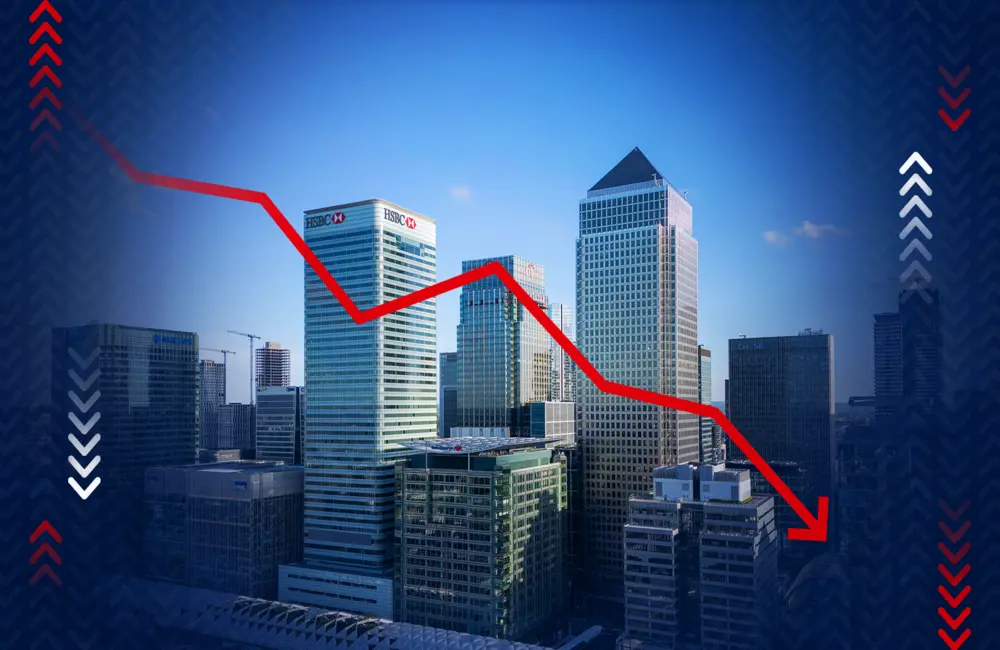Chinese shares surged in the afternoon following reports that US auditors have completed on-site inspections, and on rumours that China might relax its COVID restrictions.
ASX: The Australian share market is set to start the week on a high after the US market rose 1.61% at the close on Friday.
Stocks globally have been under pressure in recent days as central banks like the Fed and the Bank of England act aggressively to raise interest rates in efforts to combat inflation. Jerome Powell, the Fed’s chairman, indicated this week that officials could lift borrowing costs next year by more than they had forecast.
The Dow Jones Industrial Average declined 1.4 percent for the week, ending a four-week streak of gains, and the S&P 500 fell 3.3 percent. The tech-heavy Nasdaq Composite fell 5.6%, in its worst week since January.
As they have for months, investors parsed the new employment data for signs of how much more the Fed might tighten financial conditions as it works to cool the economy while tamping down high inflation. Employers added a seasonally adjusted 261,000 jobs last month, and wage gains ticked higher from the previous month.
“Today’s reading was likely not the reading the Fed would have liked to see,” said Rusty Vanneman, chief investment strategist at Orion Advisor Solutions. “They really need some economic softness to calm down inflationary pressures, and this number didn’t give it.”
Commodities
In commodity markets, Brent crude soared 3.7 dollars. In the local bond market, the yield on Australian 2 Year government bonds was 3.26%, and the 10 Year yield finished at 3.84%. Abroad, the 2 Year US Treasury note showed a yield of 4.66% while the 10 Year US Treasury notes yield was at 4.16%.
The Australian dollar fell as low as 64.64 US cents. The Wall Street Journal Dollar Index, which measures the greenback against a basket of 16 currencies, slipped 0.1% to 102.86.
Asia
Shares in China soared, with the Shanghai Composite Index gaining back all of its losses over the past two weeks. The rebound followed a report that US audit officials have finished the first of three rounds of on-site inspections of US-listed Chinese companies and speculation that China may ease its restrictions related to the Covid pandemic. The Shanghai Composite Index added 2.4% to 3070.80, the Shenzhen Composite Index gained 2.7% and the ChiNext Price Index advanced by 3.2%.
Hong Kong-listed stocks surged as investors continued to be hopeful that the risk associated with Chinese companies’ American depositary receipts being delisted might be sooner than anticipated. A rebound was also spurred in part by speculation that Beijing could be relaxing its Covid-zero policy. The Hang Seng Index leapt 5.4% to 16161.14, its highest close in two weeks. Gains were led by Chinese tech giants, which have remained at the forefront of concerns about the ADR delisting. JD.com jumped 13% and Alibaba gained 11%.
Stocks in Japan finished lower, weighed down by declines in tech companies reporting poor results in the face of lingering fears around the Fed’s ongoing tightening. Z Holdings dropped 14% after its first-half net profit sank 26% year over year. M3 tumbled 9.0% after reporting a 41% drop in its first-half net profit from the year on year. The Nikkei Stock Average declined 1.7%.
Europe
Europe’s stock markets close higher. European stocks recovered in closing trade on Friday as rumors spread that China might ease its tough policy on the coronavirus.
“These ever so nebulous reports, despite being unconfirmed in any official capacity have helped prompt a massive relief rally in equity markets, despite the well-founded concern that any kind of reopening isn’t likely to happen in the near term, and the very real prospect that they also represent a sucker’s rally,” Michael Hewson, analyst at CMC Markets, wrote.
As winter approaches, it is hard to imagine that China could put its economy back on any kind of normal level and sustain it without setting off a more broad-based outbreak of the virus, he adds.
The pan-European Stoxx Europe 600 rose 1.8 percent, in London the FTSE 100 gained 2 percent, the German DAX added 2.5 percent and the French CAC 40 added 2.8 percent.
North America
Stocks in the U.S. edged higher on Friday but still ended the week with losses as the monthly jobs report failed to alter expectations that the Federal Reserve will continue to raise interest rates.
Stocks have come under pressure in recent days after central banks including the Fed and the Bank of England moved aggressively to raise interest rates to tamp down inflation. Jerome Powell, the Fed chair, has indicated that officials could raise borrowing costs more next year than they had previously forecast.
For the week, the Dow Jones Industrial Average dropped 1.4%, ending a four-week winning run, and the S&P 500 gave up 3.3%. The tech-heavy Nasdaq Composite fell 5.6 percent in its worst week since January.
As they have for months now, investors pored over the new employment data for indications of how much more the Fed may tighten financial conditions as it tries to cool the economy and tamp down high inflation.
The report Friday did little to change that picture of a robust US labor market. Employers added 261,000 jobs last month, a seasonally adjusted figure released on Friday by the Labor Department, and wage gains ticked up from the rate in September.
“The numbers today were probably not the numbers the Fed wanted to see,” said Rusty Vanneman, chief investment strategist for Orion Advisor Solutions. They need some economic softness to reduce inflationary pressures, and this number didn’t provide it, and that’s a bad thing.
Nevertheless, there were indications that the economy was gradually losing steam. The monthly employment gains were the smallest since December 2020, and wage growth has slowed on an annual basis.
The major indexes had swung back and forth during the day, starting the morning higher before turning negative and hovering around the flatline. They climbed off lows in the afternoon to finish the day higher.
The S&P 500 on Friday added 50.66 points, or 1.4 percent, to 3,770.55. The Dow industrials gained 401.97 points, or 1.3%, to 32403.22. The Nasdaq Composite added 132.31 points, or 1.3%, to 10475.25.
Amid the threat to the economy and corporate earnings from further rate increases by the Fed, few investors think the markets are due to calm anytime soon. “For as much negative news as there is, we feel like there are a lot of really volatile days ahead,” said Mace McCain, chief investment officer at Frost Investment Advisors.
One analyst proposed that maybe investors were at last digesting the Federal Reserve’s plans to lift interest rates.
“Investors have experienced the five stages of grief this year and perhaps with today’s jobs report, they have finally reached acceptance,” said Michael Arone, the chief investment strategist for SPDR Americas at State Street.
Along with signs of hawkishness from the Fed, troubling commentary from the ongoing earnings season may have contributed to recent pressure on stocks, said Ellen Hazen, chief market strategist and portfolio manager at F.L. Putnam Investment Management Co.

























